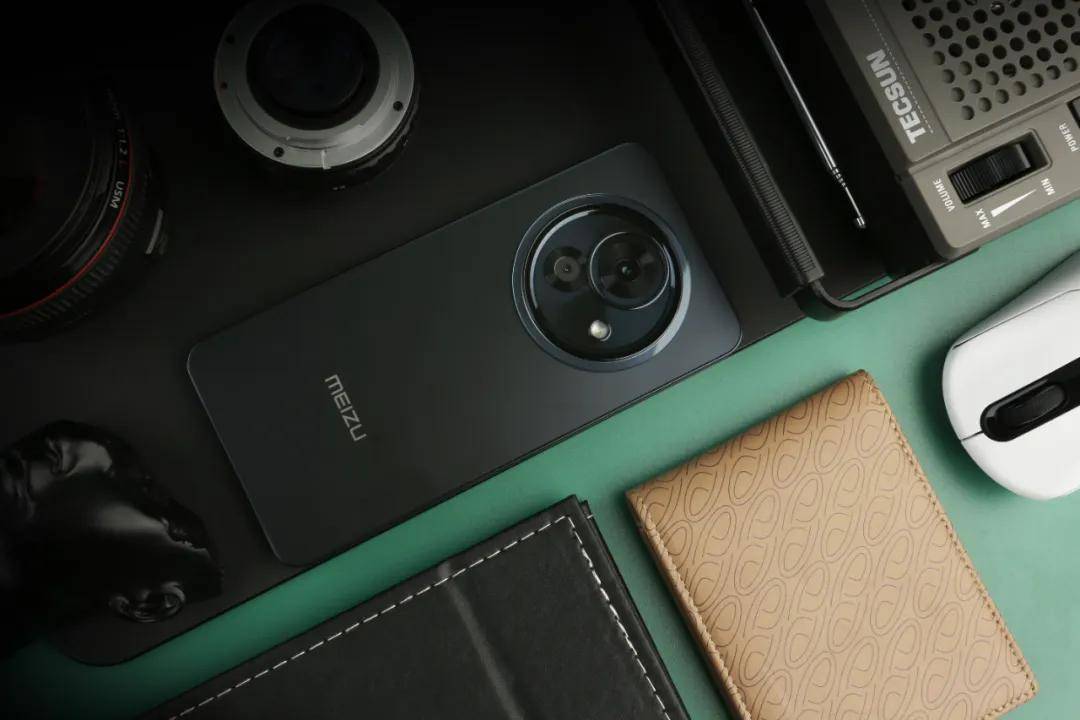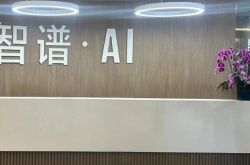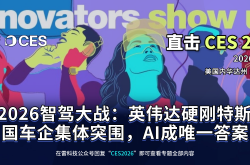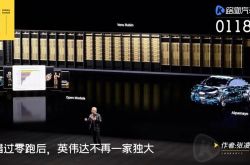Can investor Su Jing turn around Meizu's 'AI Ecosystem Strategy'?
![]() 11/14 2024
11/14 2024
![]() 503
503

Article | Smart Relativity
Author | She Kaiwen
Not long ago, Meizu, once hailed as the domestic mobile phone god, once again entered the public eye due to a press conference.
The reason for the attention is that in addition to the launch of the Meizu Lucky 08 AI phone, the conference also announced multiple products such as AR smart glasses StarV View and StarV Air2, smart ring StarV Ring2, and the Z10 STARBUFF gaming custom model jointly created by Xingji Meizu and Lynk & Co.
Spanning smartphones, wearable devices, and smart cars, the product line-up is undoubtedly diverse. It is evident that Meizu aims to transform itself from being merely a smartphone brand through comprehensive scenario intervention, thereby altering its overall brand image and embarking on a second leap.
However, for Meizu, which has been absent from the mainstream market for a long time, while this vision is undoubtedly appealing, the decision on whether it can take off again may not lie with Meizu itself.
Meizu is eager to 'progress,' but the problems remain the same
Since last year, Meizu has been making continuous big moves.
In March last year, Xingji Times and Meizu Technology officially merged into Xingji Meizu Group, with Shen Ziyu serving as Chairman and CEO. In August, Xingji Meizu decided to terminate its in-house chip development business, less than half a year after establishing the chip R&D team. In November, it began aggressively setting up offline authorized experience stores. In February this year, Xingji Meizu announced 'All in AI.' In May, there was an official leadership change, with former CEO Shen Ziyu stepping down and being replaced by Su Jing. At the same time, the legal representative of Hubei Xingji Meizu Technology Co., Ltd. was also changed from Shen Ziyu to Su Jing. Recently, based on the '1+3' strategy, Meizu launched a new product series brand, STAR, and unveiled multiple new products at once.
It can be seen that Meizu has been constantly fine-tuning its strategy, possibly out of self-doubt. However, from an outsider's perspective, it seems that the company is somewhat anxious or too eager to 'progress.'
But will Meizu's adjustments really be effective? When Shen Ziyu first took office last year, we published an article titled "Meizu, which Huang Zhang Cannot Manage, May Also Be Beyond Shen Ziyu's Capabilities," discussing the three main challenges faced by Meizu: how to convince consumers to buy Meizu products, how to establish a firm foothold in the high-end market, and whether Meizu's brand value can be recognized by the mainstream market.
Even after Shen Ziyu was replaced and Su Jing took office half a year ago, these issues still seem to plague Meizu. This may also be a primary factor leading to Shen Ziyu's replacement. Previously, Shen Ziyu had boldly stated that "Meizu aims to return to the top five in the domestic mid-to-high-end market within three years." Embarrassingly, Meizu is still struggling in the "other" category.
Even though Meizu has now proposed its 'AI Ecosystem Strategy' and achieved ecological interconnection through the Flyme AIOS system, for those familiar with Meizu, this is nothing new. When Shen Ziyu was in charge, this was already the general direction of Meizu. Optimistically, it can be seen as a continuation of Meizu's strategic direction, with everything progressing in an orderly manner. Pessimistically, it can be viewed as Su Jing not bringing anything new to Meizu since taking office.
To take a step back, Meizu is not the only one taking this approach. Even Huawei and Xiaomi are already "far ahead" in this regard. Frankly, Meizu is still following their old path, and it remains questionable whether it can catch up.
Taking Meizu's newly launched Lucky 08 AI phone as an example, its features such as AI search, AI notes, AI answering, and AI call summaries are not special and still do not escape the "dimension of general technology competition."
Currently, all these issues have been passed on to Su Jing, Meizu's new leader, but can she deliver a satisfactory answer?
'Managerial' Su Jing May Also Struggle with the AI Ecosystem Strategy
Su Jing is undoubtedly a strong woman. Public information on the internet indicates that she has served as the Secretary of the Board of Directors and Vice President of PetroChina International Investment Corporation, Executive Director of Guoxin Science and Innovation Fund, and Managing Director of Guofeng Investment Fund, among other positions. She has extensive investment and management experience in next-generation information technology, new energy vehicles, entertainment, and other fields. Before joining Xingji Meizu, Su Jing participated in founding Xingji Times as a co-founder and served as its CFO, during which time she led major projects such as the acquisition of Meizu Technology.
However, that's about it. Apart from these professional experiences, you can't even find out her age, leading some to describe her as "mysterious." Regardless of how mysterious she may be, there is a fatal problem: her resume suggests that she has no technical expertise whatsoever.
While managing or investing may not be an issue for her, Meizu is, after all, a technology company, which presents an awkward situation for Meizu at this stage.
Su Jing herself is aware of this issue, which is why she stated that Xingji Meizu has three key priorities moving forward: strategy, talent, and products. In an interview with the media, she also expressed that "finding the best talent is the core of doing everything right."
But it's not that easy. Recently, in a podcast, Facebook founder and CEO Mark Zuckerberg shared some insights, pointing out that "for a true technology company, the leader should have a solid technical background." He even bluntly stated, "If the company's CEO does not have a technical background, there is no technical talent on the board, and only one engineer in the management team understands technology, then frankly, such a company cannot be considered a technology company at all."
Therefore, Meizu's comeback battle, which relies on AI, cannot be won solely through an ecosystem. Meizu's three-year comprehensive 'All IN AI' strategy, focusing on AI Device, seems somewhat theoretical given that the helmsman "does not understand technology herself."
Admittedly, Su Jing's arrival has not been without benefits for Meizu. For example, Su Jing is accelerating Meizu's overseas expansion. After taking office as President of Xingji Meizu in November last year, she led the completion of an international distribution agreement between Xingji Meizu and Malaysian tech giant Giga-Byte in January this year, providing MYVU AR smart glasses to consumers in 11 countries, mainly in Southeast Asia.
If this overseas expansion had happened a few years earlier, it might have been a good decision for Meizu. However, these markets are already dominated by Xiaomi, OPPO, and vivo. Even for products like smart glasses, Meizu's brand influence in these regions is limited, making it a case of "too little, too late."
Establishing a 'New Perception': A Long and Arduous Journey for Meizu
'Integrating multi-technology fusion innovation and ecology featuring artificial intelligence, seamless interaction, space-terrestrial communication, and cross-border interconnection capabilities' sounds like a grand vision painted by Su Jing for Meizu. While the concept of AI is undoubtedly popular, not everyone can partake in this pie.
Take Apple as an example; despite the buzz around AI, its applications have been slow to materialize. Recently, an Apple employee even Self destruct that "Apple's AI is two years behind the world!" The gap for a newcomer like Meizu is even more significant.
After launching the 'STAR+Meizu' brand matrix, Meizu's business really looks more diversified, but this diversification is not ideal.
In the mobile phone business, despite the heated topic of AI phones, they are still stuck in the "dimension of general technology competition." The training capabilities for large models have yet to be implemented, and Flyme AIOS still faces many challenges.
The XR business is also far from mature. To date, there has not even been a blockbuster product, and even Pico, which once enjoyed significant popularity, has been rumored to be abandoned (despite later denials by ByteDance). Nonetheless, it cannot be denied that Pico now resembles an empty product after "excessive promotion." Even excluding ByteDance, in the current downward market environment, according to IDC's China AR/VR Headset Market Quarterly Tracker Report for the first half of 2024, domestic AR/VR headset shipments were 233,000 units, a year-on-year decrease of 29.1%. Meizu still needs to face competition from brands like Huawei, Xiaomi, and OPPO, making it difficult for its XR business to break through.
Then there's the smart car business. The good news is that Meizu has a head start in this area. As the third domestic mobile phone company to enter the automotive field, and with the natural advantage of being backed by Geely, Meizu has a leg up in this regard. However, the problems are also significant. Compared to Huawei and Xiaomi, where the automotive business is a part of their overall ecosystem, for Meizu, it's the other way around. Some describe Meizu as "completely becoming a subsidiary of Geely Automobile," highlighting the vast difference.
In summary, for Su Jing, the current internal and external environment is not any better than during Shen Ziyu's tenure, and may even be worse in the "fast vs. slow" competition. For Meizu to establish a 'new perception' in the market, it urgently needs a representative product, not just abstract upper-level theories.
Shen Ziyu's one-year tenure barely brought any tangible changes to Meizu and ultimately ended in failure due to overpromising. How long can Su Jing last in her position as CEO of Meizu? Can she inject new vitality into Meizu and surpass her predecessor? It remains a long and arduous journey.
*All images in this article are sourced from the internet



